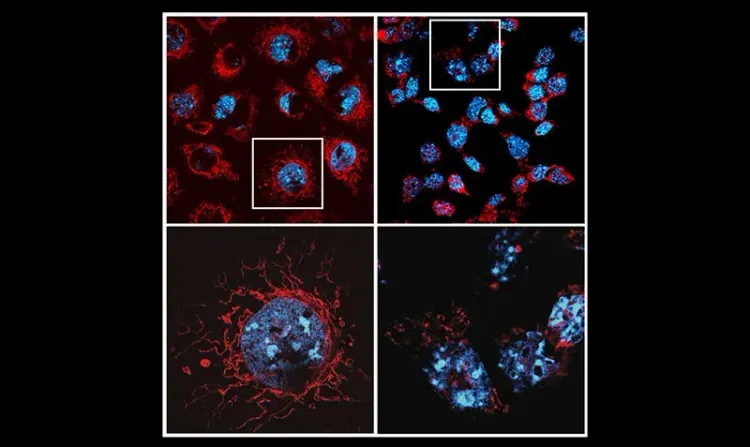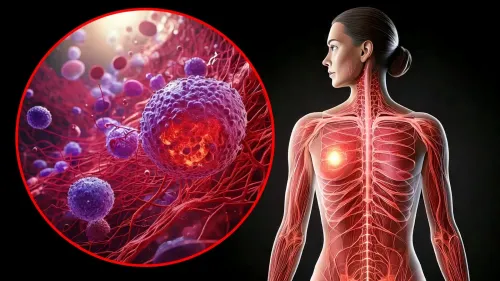What Makes Promising Cancer Treatments Cause Serious Side Effects?

Synopsis
Key Takeaways
- New study reveals MCL-1's role in cancer treatment side effects.
- MCL-1 provides energy to normal cells, impacting treatment safety.
- Targeting MCL-1 could lead to safer cancer therapies.
- Research opens new avenues for combination therapies.
- Smart dosing may help spare healthy tissues while attacking tumors.
New Delhi, July 9 (NationPress) While cancer treatments have made remarkable strides, leading to enhanced survival rates, they often come with serious side effects that can diminish quality of life.
A recent study conducted by researchers in Australia is illuminating the underlying causes of these adverse effects, according to a report by the Xinhua news agency.
The team at the Walter and Eliza Hall Institute of Medical Research (WEHI) in Melbourne found that the protein MCL-1—a crucial target in the development of cancer therapies—not only prevents cell death in cancerous cells but also provides energy to normal cells.
Consequently, medications that block MCL-1 can unintentionally harm healthy tissues that depend on this protein for energy, particularly in high-energy-demand organs like the heart and liver, resulting in the severe side effects observed during clinical trials, the researchers explained.
The study reveals that these side effects are potentially attributable to the protein's vital role in cellular energy production, paving the way for the creation of safer and more targeted cancer treatments that minimize damage to healthy cells while effectively combating cancer.
Dr. Kerstin Brinkmann, the study's lead author, noted that although earlier research on cell cultures suggested MCL-1's metabolic role in energy supply, its significance in living organisms was previously uncertain.
“These findings open a completely new perspective on the relationship between programmed cell death and metabolism—an area that has been theorized for years but never demonstrated in a living organism until now,” said Brinkmann.
Published in the journal Science, this study also lays the groundwork for safer combination therapies by allowing for more intelligent dosing and the pairing of MCL-1 inhibitors with other treatments to lessen toxicity.
“If we can direct MCL-1 inhibitors specifically to tumor cells while avoiding healthy tissues like the heart, we could effectively eliminate cancer cells while protecting normal tissues,” stated Andreas Strasser, head researcher at the WEHI.










